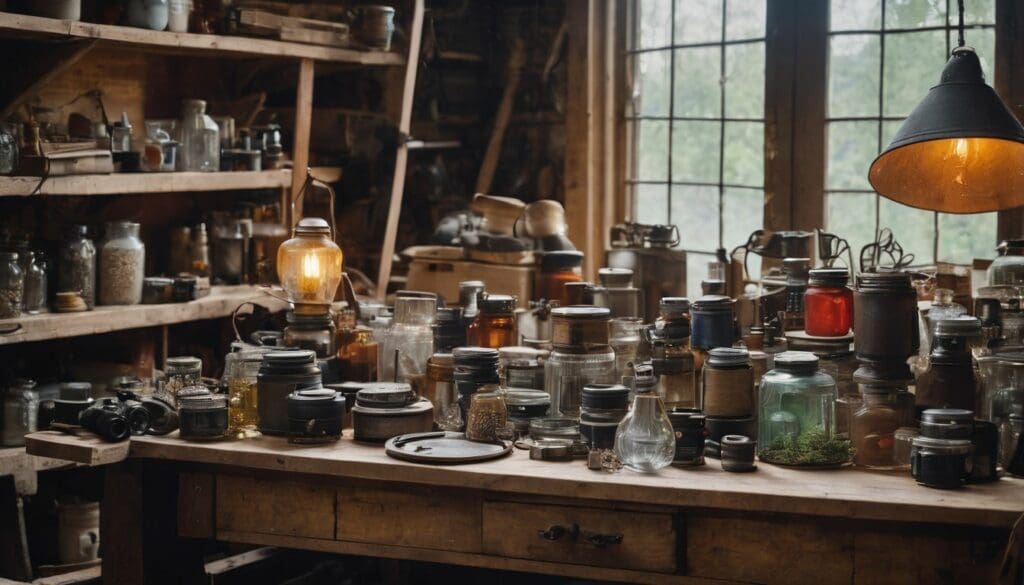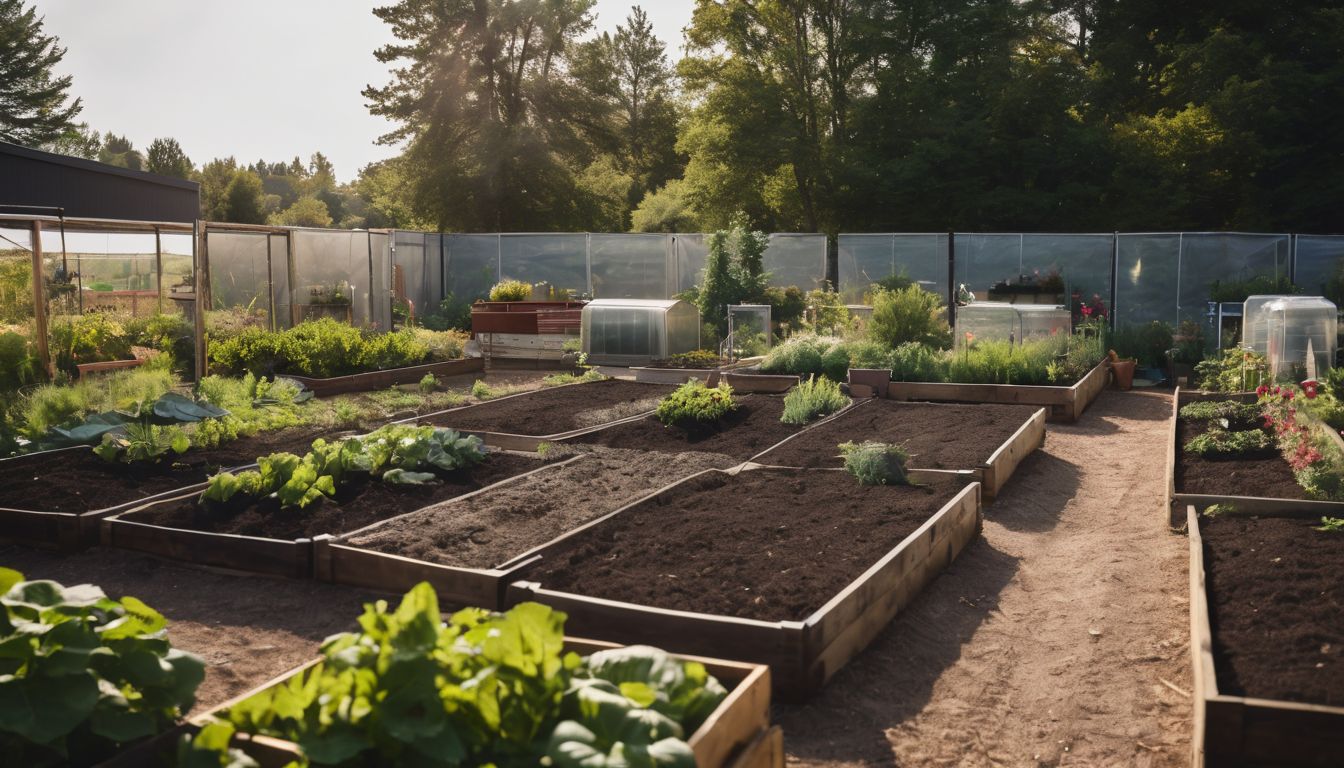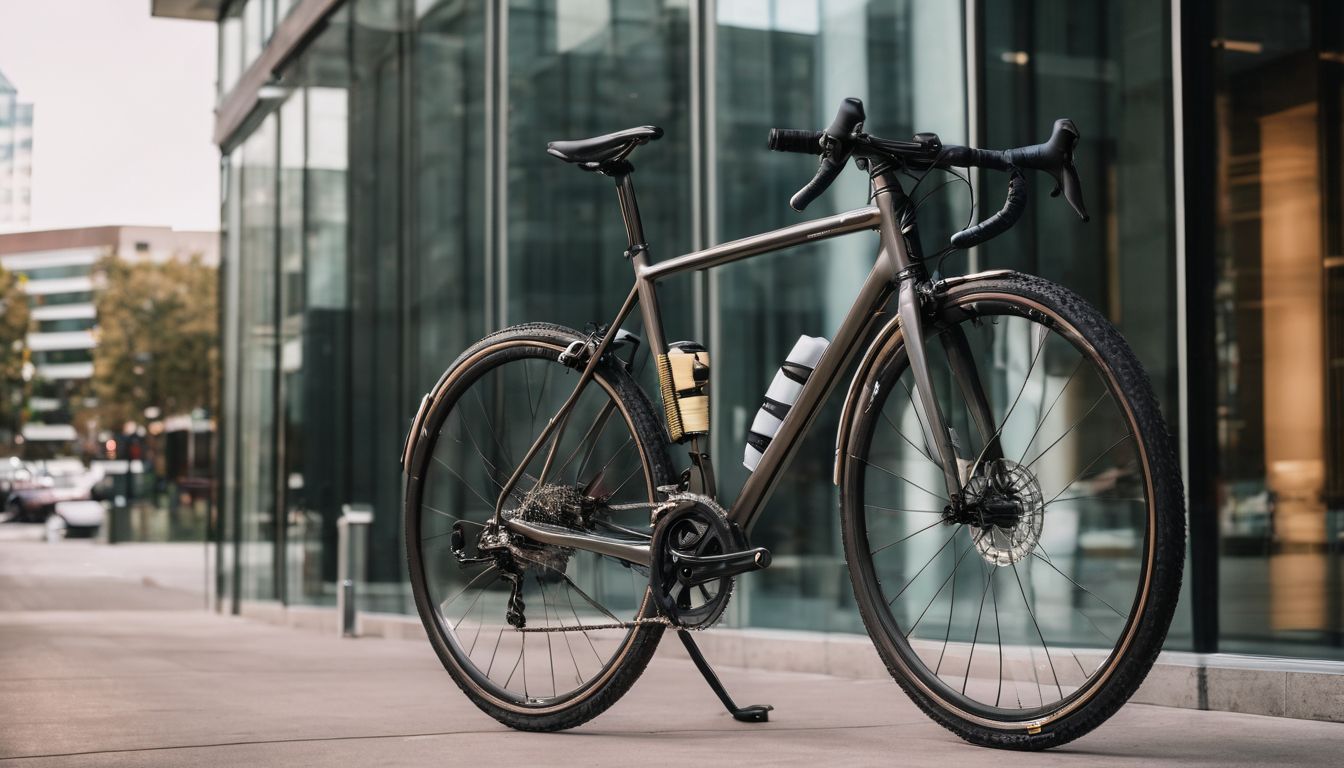Do you often find yourself with a pile of old belongings, grappling with the niggling feeling that they’re too good to simply throw away? You’re not alone. Many of us face this conundrum and yearn for eco-friendly alternatives.
Our DIY upcycling workshop guide is here to show you precisely how to breathe new life into these items, transforming your clutter into charming treasures. Embrace sustainable living with our step-by-step projects and let’s get stuck in – it’s time to roll up our sleeves, unleash some creativity and do our bit for the planet together!
Key Takeaways
- Choose a theme and set a date for your DIY upcycling workshop to ensure it’s convenient for attendees, avoiding clashes with holidays or local events. Collaborate in teams around this focus and impose spending limits to promote creativity on a budget.
- Gather necessary materials like recyclable items and eco – friendly art supplies, ensuring you have the right tools and organised storage solutions ready. Use social media to publicise your event, highlighting its sustainability aspects.
- Offer hands – on demonstrations of various upcycling techniques during the workshop, inviting guest crafters if possible. Encourage participants’ practical involvement to bolster confidence in their ability to repurpose creatively.
- Emphasise the importance of reducing waste by using sustainable practices throughout the workshop. Show how upcycling can decrease landfill contributions while enabling creative expression.
- Secure an accessible venue that supports environmental efforts, making sure it is reachable via sustainable transport means such as public transit or biking paths. Provide reusable packaging options for finished projects to minimise additional waste.
Planning Your DIY Upcycling Workshop
When planning your DIY Upcycling Workshop, it’s important to choose a focus and date that works well for everyone involved. Creating themes and teams can help generate excitement and collaboration among participants.
Setting a spending limit can also ensure that projects remain accessible to all attendees. Finally, announcing rules and details of the workshop can help set clear expectations for everyone involved.
Choosing a focus and date
Let’s pick a theme that sparks excitement and matches our mission for sustainable living. An upcycled fashion show or a zero-waste home decor workshop could both be hits, depending on what vibes with us the most.
We’ll aim for a date that gives everyone ample time to prepare, ensuring it doesn’t coincide with major holidays or community events. A weekend usually works best, as more friends can join in on the fun of eco-friendly crafting.
Once we decide on our upcycling event’s specific focus, we can split tasks among teams to make planning smoother. Moving forward also means thinking about how much each person might need to spend on repurposing materials – setting clear limits keeps everything fair and affordable for all participants.
Creating themes and teams
To create a fun and engaging DIY upcycling workshop, consider selecting themes that resonate with the audience. Encourage participants to form teams, fostering collaboration and creativity.
By assigning each team a unique theme or specific project, such as repurposing household items or creating eco-friendly fashion accessories, you can spark excitement and friendly competition among attendees.
This approach not only adds an element of fun but also allows participants to share ideas and learn from one another’s experiences.
Another key aspect is ensuring that the chosen themes align with environmental awareness and sustainability goals. Emphasise the importance of using reusable materials and reducing waste in line with the workshop’s ethos.
Setting a spending limit
To ensure that our DIY upcycling workshop is accessible to everyone, we agree on setting a spending limit for materials. This action encourages creativity and resourcefulness by working within constraints.
By doing this, it also promotes the use of sustainable and affordable materials in line with our eco-friendly ethos.
We will aim to keep costs low by utilising reusable items such as glass jars, fabric scraps, or old newspapers. It’s important to demonstrate how innovative and imaginative solutions can be found without overspending.
Announcing rules and details
We will clearly communicate the rules and details of the workshop, ensuring that everyone understands what is expected. We will set a spending limit to encourage creativity within constraints, promoting resourcefulness and eco-friendly solutions.
Additionally, we will establish guidelines for accepting only upcycled or sustainable materials in order to align with our zero waste ethos. These concrete rules and expectations will ensure that all participants are on the same page, fostering a collaborative environment focused on sustainability.
Furthermore, we’ll announce key information such as dates, times, and any specific themes or teams involved. This transparent communication ensures that everyone has access to the necessary details and can come prepared for an enriching experience at our eco-friendly DIY event.
Encouraging Creativity
Showcasing a variety of DIY projects and upcycling ideas, providing hands-on demonstrations, and emphasising the importance of reducing waste through creative means. Read on to discover more about hosting your own eco-friendly upcycling workshop!
Featuring DIY projects and upcycling ideas
We love to inspire creativity by showcasing a variety of DIY projects and upcycling ideas. Here are some engaging activities and ideas to consider for your workshop:
- Building birdhouses from reclaimed wood
- Creating stylish tote bags from old t – shirts
- Crafting unique planters from recycled containers
- Designing jewellery from repurposed materials
- Upcycling glass jars into decorative lanterns
- Transforming denim jeans into trendy home decor
Providing hands-on demonstrations
After featuring DIY projects and upcycling ideas, we believe in the importance of providing hands-on demonstrations during the workshop. This will help participants gain practical experience and confidence in upcycling. Here’s what we’ll be doing:
- Demonstrating basic techniques: We will showcase simple upcycling methods such as painting, decoupage, and fabric wrapping to inspire creativity.
- Inviting guest crafters: Experienced artisans will conduct live demonstrations to provide diverse perspectives and expertise for a well-rounded learning experience.
- Encouraging participation: Attendees can try their hand at various upcycling techniques with the guidance of our skilled demonstrators.
- Showcasing before-and-after transformations: Visual examples of items being repurposed will demonstrate the potential of upcycling.
- Offering interactive tutorials: Participants will have the opportunity to follow step-by-step instructions for creating their own upcycled masterpieces, using reusable materials and waste reduction principles.
Emphasising the importance of reducing waste
After providing hands-on demonstrations, it’s crucial to emphasise the importance of reducing waste. Encouraging sustainable practices and highlighting the environmental impact of repurposing materials can inspire participants to make conscious choices in their crafting endeavors.
By showcasing the value of upcycling and its contribution to minimising landfill waste, we can cultivate a sense of responsibility towards our planet while engaging in creative activities that promote eco-friendly living.
This emphasis not only adds depth to the workshop experience but also aligns with our commitment to promoting a greener and more sustainable way of life for all.
Hosting the Workshop
Securing a suitable venue for the workshop, gathering all necessary materials and promoting the event to attract participants are key aspects of hosting a successful DIY Upcycling Workshop.
Managing nerves and creating an inclusive atmosphere is also essential for ensuring that everyone feels welcome and motivated to participate.
Securing a venue
To host our eco-friendly upcycling workshop, we need to secure a venue that aligns with our sustainable values. Finding a location that supports recycling and repurposing will enhance the overall theme of the event.
Look for community centres, local parks, or even environmentally conscious businesses that share our passion for reducing waste. We want a space that can accommodate our attendees comfortably and provide an open area for creative expression.
By choosing a venue with eco-friendly practices in place, we can ensure that the environmental impact of our workshop is minimal.
Gathering necessary materials
After securing a venue for the workshop and ensuring all logistical details are in place, the next step is to gather the necessary materials for the upcycling projects. Here’s what you’ll need:
- Recyclable and Upcyclable Materials
- Gather a variety of recyclable items such as glass jars, cardboard boxes, old fabric or clothing, and discarded furniture pieces.
- Seek out upcycling – friendly materials like paint, glue, and basic crafting tools.
- Sustainable Art Supplies
- Look for eco-friendly paints, dyes, and adhesives that are non-toxic and made from natural ingredients.
- Consider using repurposed brushes, sponges, and applicators to reduce waste.
- Reusable Crafting Tools
- Provide participants with scissors, rulers, cutting mats, and other essential tools that can be reused for future projects.
- Encourage the use of second – hand or borrowed tools to minimise resource consumption.
- Organised Storage Solutions
- Use labelled bins or containers to sort materials by type and size for easy access during the workshop.
- Set up a designated area for scrap materials where participants can find inspiration for their upcycling projects.
- Thoughtful Packaging Options
- Offer sustainable packaging options for participants to transport their finished crafts home without creating additional waste.
- Incentivise participants to bring their own reusable bags or containers to carry their creations.
Promoting the workshop
To promote the DIY upcycling workshop, we will use social media platforms to share engaging content about the event. We’ll create visually appealing graphics and videos showcasing the craft projects and eco-friendly aspects of the workshop.
Utilising hashtags such as #ZeroWasteCrafting and #EcoFriendlyDIYGathering will help reach a wider audience interested in sustainable crafting. Additionally, we’ll collaborate with local environmental organisations to spread the word among like-minded individuals who support conservation efforts.
Encouraging attendees to bring along friends or family members who are passionate about repurposing and reducing waste can also expand our reach. By emphasising that it’s not just a crafting session but an opportunity to make a positive impact on the environment, we hope to attract those who align with our values of sustainability and creativity.
Managing nerves
To manage nerves, it’s helpful to practice beforehand and familiarise oneself with the workshop space. Breathing exercises can also be beneficial in calming nerves before hosting a DIY upcycling workshop.
Additionally, making a checklist of tasks and materials needed can help ease anxiety and ensure that everything runs smoothly on the day of the event.
Being well-prepared is essential for hosting an eco-friendly crafting session, as it allows us to focus on creating a positive experience for our attendees. Engaging in relaxation techniques and being organised will contribute to a successful and enjoyable DIY upcycling workshop for all involved.
Conclusion
In summary, hosting a DIY upcycling workshop involves meticulous planning and encouraging creativity. It’s about securing a venue, gathering materials, and promoting the event to create a successful experience.
Emphasising the importance of reducing waste and providing hands-on demonstrations will inspire attendees to embrace sustainable crafting practices. The ultimate goal is to foster an environment where eco-conscious individuals can come together to repurpose items creatively while supporting environmental conservation efforts.
FAQs
1. What is a DIY upcycling workshop?
A DIY upcycling workshop is a creative class where people learn to repurpose old items into new, eco-friendly crafts.
2. How can I make my upcycling workshop zero waste?
To host a zero waste crafting session, use reusable materials and teach methods that minimise trash in your DIY gathering.
3. What activities are done in sustainable crafting workshops?
In sustainable crafting workshops, participants engage in making handmade crafts from repurposed items while focusing on green living practices.
4. Can anyone organise an environmental art workshop?
Yes! Anyone with a passion for eco-friendly DIY projects can plan and host an environmental art workshop focused on repurposing everyday objects.
5. What do I need to start hosting my own repurposed item crafting event?
Get started by gathering supplies for handmade crafts and learning about zero waste techniques; then you’re ready to lead your very own repurposed item crafting event.





